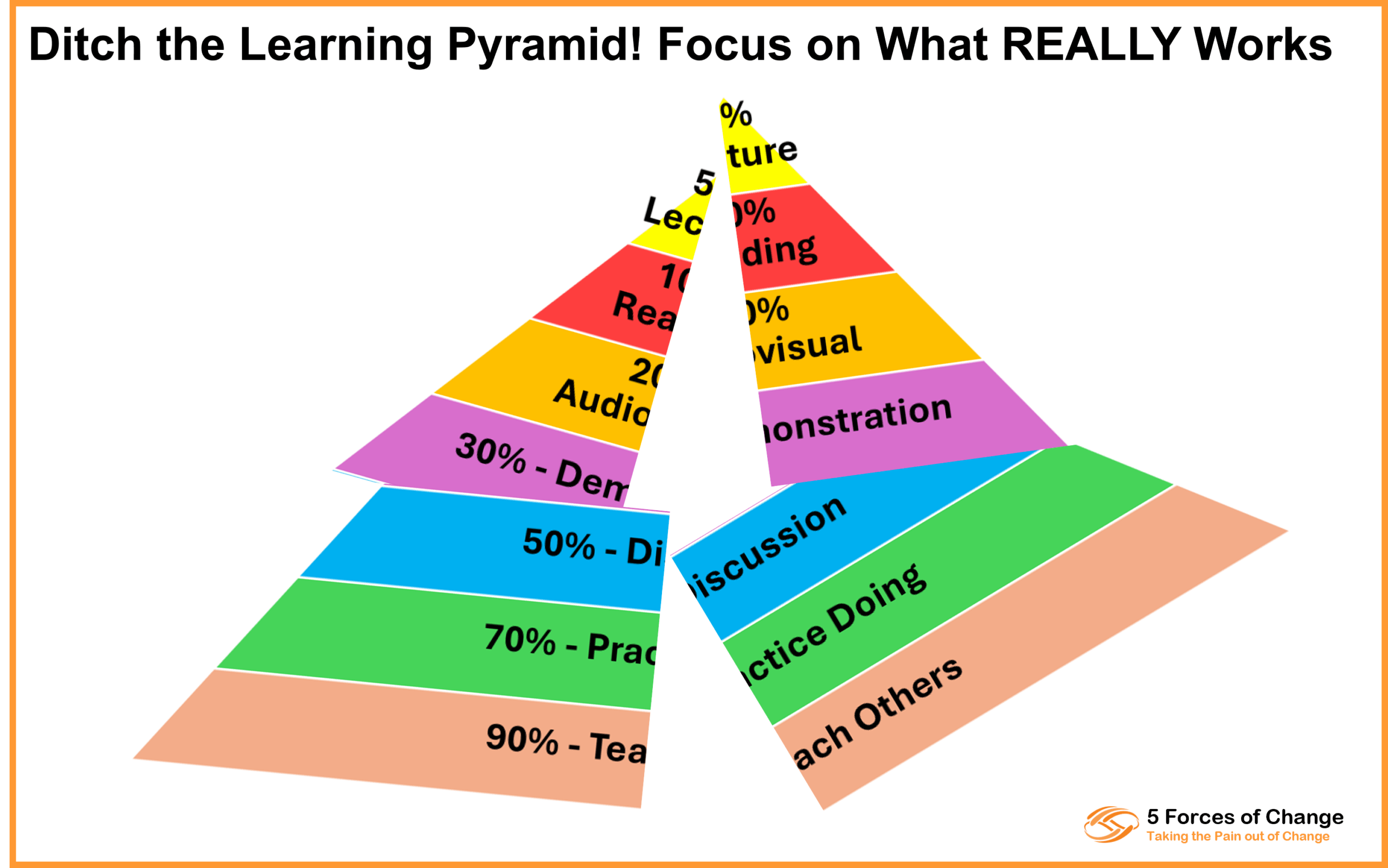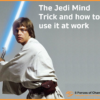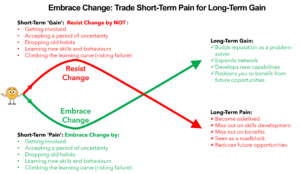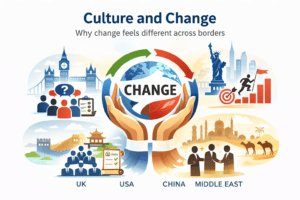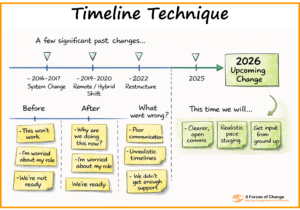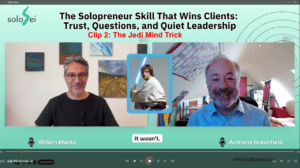It’s time to ditch the Learning Pyramid and focus on what really works.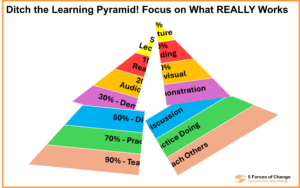
Ever seen that popular ‘Learning Pyramid’ showing we only remember 5% from lectures but a whopping 90% from teaching others? It looks compelling; promising a simple path to retention.
But here’s the reality check: Those specific percentages are largely unfounded. There’s no robust research backing them up. The pyramid often misrepresents Edgar Dale’s original ‘Cone of Experience’, which focused on the concreteness of learning activities, not memory retention rates.
Learning is complex – it’s influenced by motivation, prior knowledge, content type, and how we engage, not just the method itself. Relying on this debunked model can lead us down ineffective paths. It’s time to ditch the Learning Pyramid!
Focus on What Really Works
So, what’s the alternative? Let’s focus on evidence-based strategies proven by cognitive science:
- Active Recall: Stop just re-reading! Actively test yourself and retrieve information from memory. It’s a learning superpower.
- ️ Spaced Repetition: Don’t cram! Review material at increasing intervals to significantly boost long-term recall.
- Elaboration: Connect new ideas to existing knowledge. Explain concepts in your own words to deepen understanding.
- Interleaving: Mix up related topics or skills during practice. This builds more flexible and robust knowledge than blocking practice.
- ‼️ Dual Coding: Combining verbal information with relevant visuals (diagrams, graphs, infographics). Processing information in two different ways can enhance understanding and recall.
Concrete Examples: Using specific, relatable examples to illustrate abstract concepts makes them easier to grasp and remember.
Conclusion
By focusing on how we process information using these proven techniques – rather than relying on the pyramid’s flimsy percentages – we can genuinely enhance learning and development for ourselves and our teams.
Let’s build our skills on solid ground, not myths!
What are your favourite evidence-based learning strategies? Share with me on LinkedIn:
For examples of successful collaborative learning leading to mindset change see.

